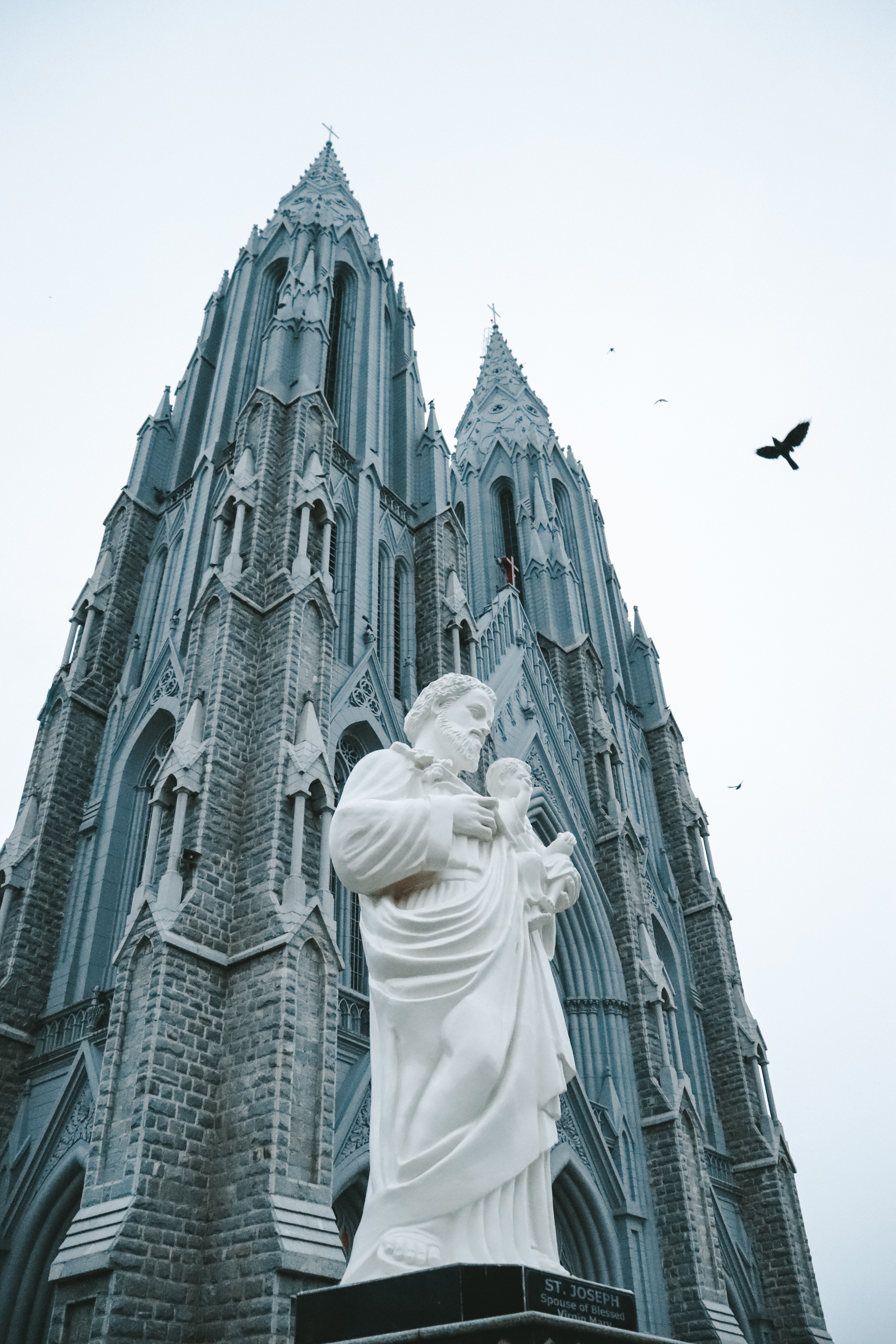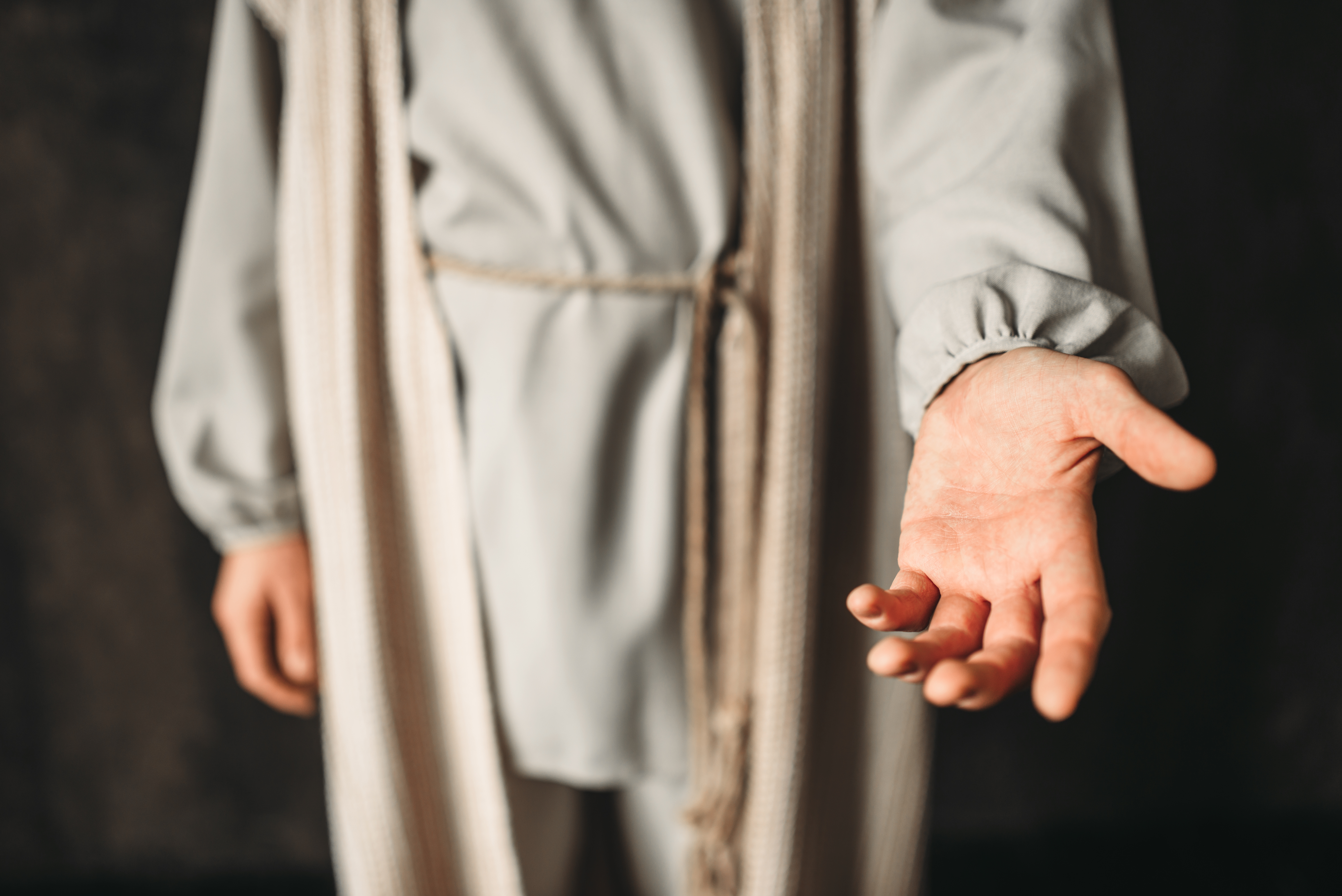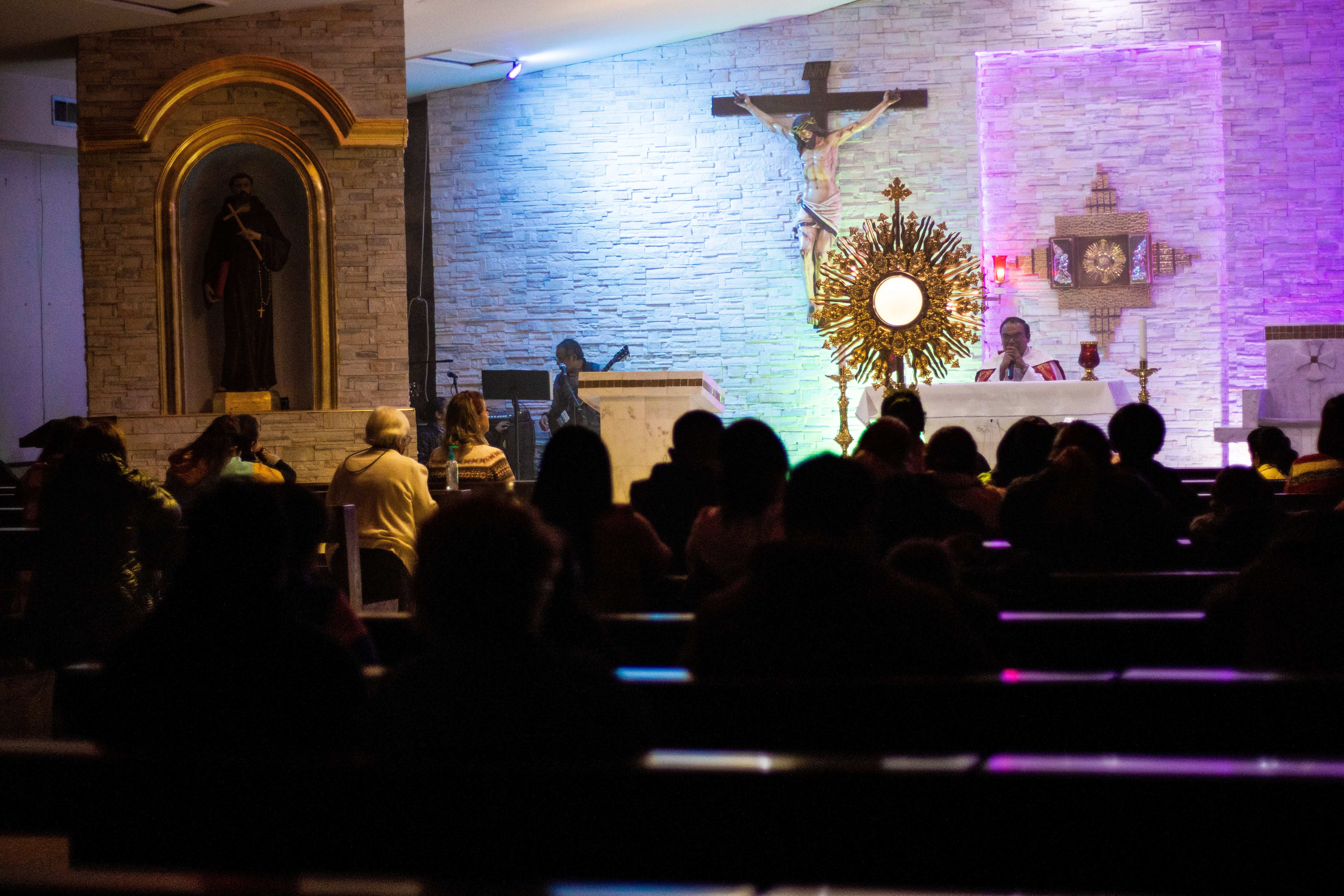“In the twilight of our lives, we will be judged based on how we loved.” – St John of the Cross.
How do you treat others? Do you take for granted those closest to you? Do you open your eyes to strangers in need, or look the other way?
I know for myself I am extremely sensitive to criticism. It can be so hard to be around those who have hurt or offended me. Forgiveness is perhaps the most difficult of Christ’s teachings to follow in my daily life. And yet, as a Christian, we will be known by our ability to forgive. To truly love one another as Christ has loved us, we must set ourselves apart from the rest of the world. Since we are all part of the Kingdom, we need to figure out how to get along with each other – after all, we will be spending eternity together!
One day we will be judged on how we loved. On love alone. Ultimately we have to ask ourselves, “Did I show up? Did I say, ‘Here I am’, to those who needed me?” As Abraham, Moses, Samuel, and others said “Here I am” to God, do I show the same readiness to serve those around me? Christ teaches us that the greatest commandment is to love God with all our heart, all our mind, all our soul, and all our being by loving one another. The Good Shepherd will give up his life for his sheep.
If God were to call me now, in this very instant, would I be ready to die? How have I shown love? Have I made those around me feel valued and loved? God will ask us how much we gave of ourselves. Were we able to overcome our own egoism?
Let us reflect on how we treat both strangers and those closest to us.
God, soften my heart. Set me free from the bondage of refusing to forgive and serve others.
“En el ocaso de nuestras vidas, seremos juzgados en función de cómo amamos”. – San Juan de la Cruz.
¿Cómo tratas a los demás? ¿Tomas por echo a tus seres queridos? ¿Abres los ojos a los necesitados desconocidos o volteas la vista a otro lado?
Por ejemplo, sé que yo soy muy sensible a las críticas. Puede ser tan difícil estar cerca de aquellos que me han lastimado u ofendido. El perdón es quizás la enseñanza de Cristo más difícil de seguir en mi vida diaria. Y, sin embargo, como cristianos, seremos conocidos por nuestra capacidad de perdonar. Para amarnos verdaderamente unos a otros como Cristo nos ha amado, debemos diferenciarnos del resto del mundo. Dado que todos somos parte del Reino, debemos descubrir cómo llevarnos bien entre nosotros; porque al final, ¡pasaremos toda la eternidad juntos!
Un día seremos juzgados por cómo hemos amado. Solo por el amor. En última instancia, tenemos que preguntarnos: “¿Me presenté? ¿Dije, ‘Aquí estoy’, a aquellos que me necesitaban?” Como Abraham, Moisés, Samuel y otros dijeron “Aquí estoy” a Dios, ¿muestro la misma disposición para servir a los que me rodean? Cristo nos enseña que el mayor mandamiento es amar a Dios de todo corazón, con toda la mente, todo el alma y todo nuestro ser amándonos unos a otros, el Buen Pastor dará su vida por sus ovejas.
Si Dios me llamara ahora, en este mismo instante, ¿estaría lista para morir? ¿Cómo he demostrado amor? ¿Los que me rodean se sientan valorados y amados por la forma que los trato? Dios nos preguntará cuánto dimos de nosotros mismos. ¿Fuimos capaces de superar nuestro propio egoísmo?
Reflexionemos sobre cómo tratamos tanto a los extraños como a los más cercanos a nosotros.
Señor Dios, suavice mi corazón. Libérame de la esclavitud de negarme a perdonar y servir a los demás.
 Dr. Alexis Dallara-Marsh is a board-certified neurologist who practices in Bergen County, NJ. She is a wife to her best friend, Akeem, and a mother of two little ones on Earth and two others in heaven above.
Dr. Alexis Dallara-Marsh is a board-certified neurologist who practices in Bergen County, NJ. She is a wife to her best friend, Akeem, and a mother of two little ones on Earth and two others in heaven above.
Feature Image Credit: Cielo_Abigail, cathopic.com/photo/12943-mirada-de-eternidad


 Tami Urcia grew up in Western Michigan, a middle child in a large Catholic family. She spent early young adulthood as a missionary in Mexico, studying theology and philosophy, then worked and traveled extensively before finishing her Bachelor’s Degree in Western Kentucky. She loves tackling projects, finding fun ways to keep her little ones occupied, quiet conversation with the hubby and finding unique ways to love. She works full time, is a guest blogger on
Tami Urcia grew up in Western Michigan, a middle child in a large Catholic family. She spent early young adulthood as a missionary in Mexico, studying theology and philosophy, then worked and traveled extensively before finishing her Bachelor’s Degree in Western Kentucky. She loves tackling projects, finding fun ways to keep her little ones occupied, quiet conversation with the hubby and finding unique ways to love. She works full time, is a guest blogger on 
 Elizabeth Tomlin is the author of Joyful Momentum: Building and Sustaining Vibrant Women’s Groups and contributing author to the Ave Prayer Book for Catholic Mothers. She is General Counsel for the Archdiocese for the Military Services, USA. Elizabeth is an Army wife and mother of three and currently lives in the DC area. She blogs at
Elizabeth Tomlin is the author of Joyful Momentum: Building and Sustaining Vibrant Women’s Groups and contributing author to the Ave Prayer Book for Catholic Mothers. She is General Counsel for the Archdiocese for the Military Services, USA. Elizabeth is an Army wife and mother of three and currently lives in the DC area. She blogs at 
 Allison Gingras (
Allison Gingras ( 



 Susan Ciancio has a BA in psychology and a BA in sociology from the University of Notre Dame, with an MA in liberal studies from Indiana University. For the past 19 years, she has worked as a professional editor and writer, editing both fiction and nonfiction books, magazine articles, blogs, educational lessons, professional materials and website content. Thirteen of those years have been in the pro-life sector. Currently Susan freelances and writes weekly for HLI, edits for American Life League, and is the executive editor of Celebrate Life Magazine. She also serves as executive editor for the Culture of Life Studies Program—an educational nonprofit program for K-12 students. You can reach her at
Susan Ciancio has a BA in psychology and a BA in sociology from the University of Notre Dame, with an MA in liberal studies from Indiana University. For the past 19 years, she has worked as a professional editor and writer, editing both fiction and nonfiction books, magazine articles, blogs, educational lessons, professional materials and website content. Thirteen of those years have been in the pro-life sector. Currently Susan freelances and writes weekly for HLI, edits for American Life League, and is the executive editor of Celebrate Life Magazine. She also serves as executive editor for the Culture of Life Studies Program—an educational nonprofit program for K-12 students. You can reach her at 


 Sheryl is happy to be the number 1 cheerleader and supporter for her husband, Tom who is a candidate for the Permanent Diaconate in the Diocese of Kalamazoo. They are so grateful for the opportunity to grow together in this process. Sheryl’s day job is serving her community as the principal for St. Therese Catholic School in Wayland, Michigan. Since every time she thinks she gets life all figured out, she realizes just how far she has to go, St. Rita of Cascia is her go-to Saint for intercession and help. Home includes Carlyn, a very, very goofy Golden Retriever and Lucy, our not-so-little rescue puppy.
Sheryl is happy to be the number 1 cheerleader and supporter for her husband, Tom who is a candidate for the Permanent Diaconate in the Diocese of Kalamazoo. They are so grateful for the opportunity to grow together in this process. Sheryl’s day job is serving her community as the principal for St. Therese Catholic School in Wayland, Michigan. Since every time she thinks she gets life all figured out, she realizes just how far she has to go, St. Rita of Cascia is her go-to Saint for intercession and help. Home includes Carlyn, a very, very goofy Golden Retriever and Lucy, our not-so-little rescue puppy. 


 J.M. Pallas has had a lifelong love of Scriptures. When she is not busy with her vocation as a wife and mother to her “1 Samuel 1” son, or her vocation as a public health educator, you may find her at her parish women’s bible study, affectionately known as “The Bible Chicks.”
J.M. Pallas has had a lifelong love of Scriptures. When she is not busy with her vocation as a wife and mother to her “1 Samuel 1” son, or her vocation as a public health educator, you may find her at her parish women’s bible study, affectionately known as “The Bible Chicks.”
 Kate Taliaferro is an Air Force wife and mother. She is blessed to be able to homeschool, bake bread and fold endless piles of laundry. When not planning a school day, writing a blog post or cooking pasta, Kate can be found curled up with a book or working with some kind of fiber craft. Kate blogs at
Kate Taliaferro is an Air Force wife and mother. She is blessed to be able to homeschool, bake bread and fold endless piles of laundry. When not planning a school day, writing a blog post or cooking pasta, Kate can be found curled up with a book or working with some kind of fiber craft. Kate blogs at 